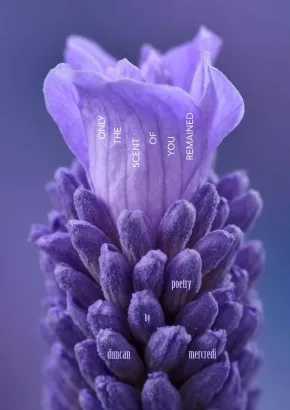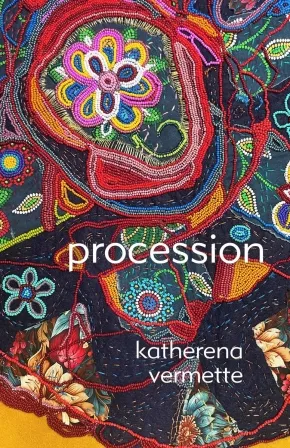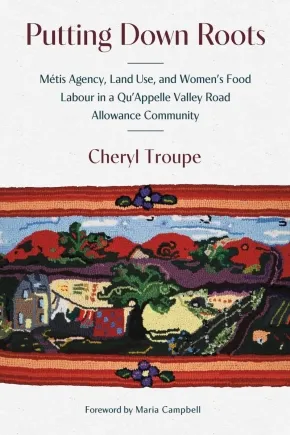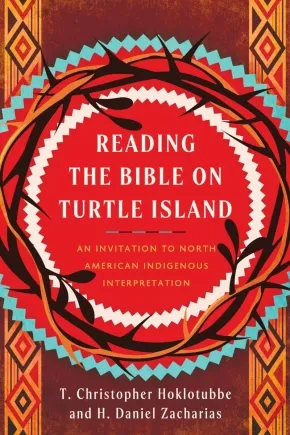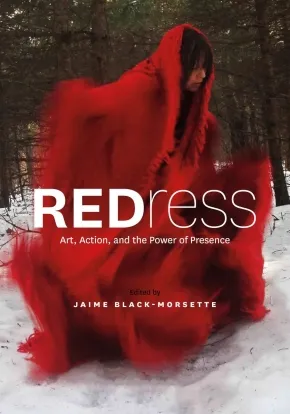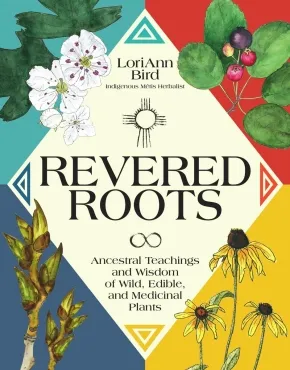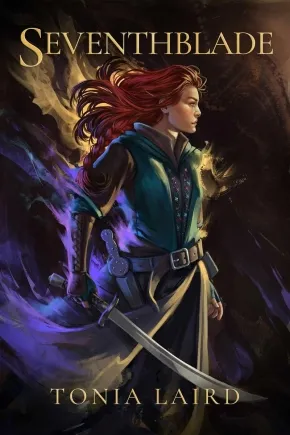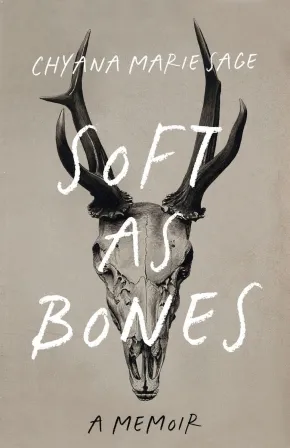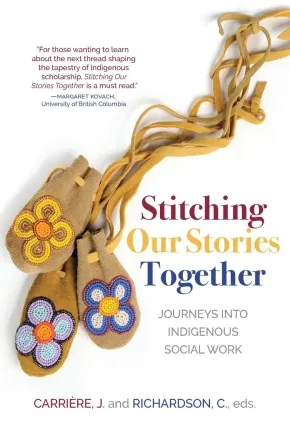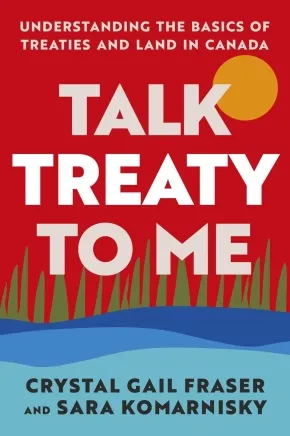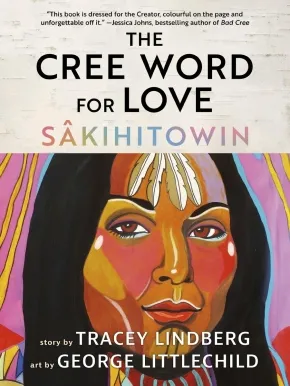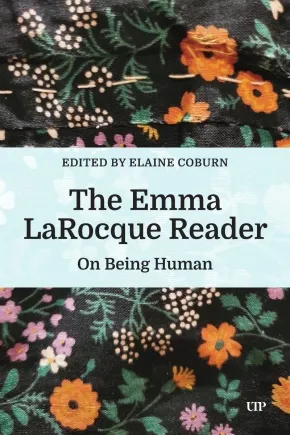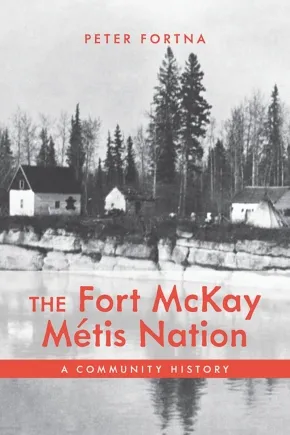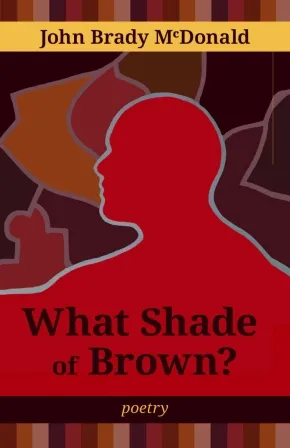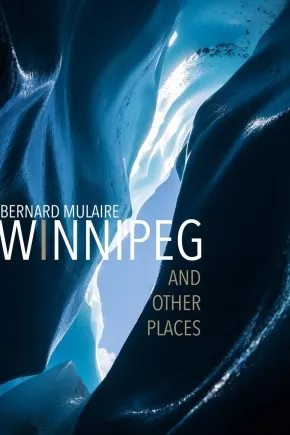Métis
Synopsis:
Duncan Mercredi was Winnipeg's Poet Laureate in 2021. In this frank, raw, and honest collection the poet chases down the river of who he is. Each bend, each stone, every waterfall, a sharing of self. Then the writings can be rolled up and when the time comes, the time that he leaves the place he calls home, they will be placed on the sacred fire. To return to where they came from. You are invited to walk with the author during intimate reflection and pause to remember the people who have been a part of his life and journey, the ones who influenced him, both good and bad. The paths taken, the roads travelled that led him to this city. As the wick burns the last of its wax we recognize its existence as the scent of smoke still remains long after the light goes out.
Additional Information
160 pages | 5.00" x 7.50" | Paperback
Synopsis:
you are only here
to learn from those who came before
and make space
for those who come after
Procession: a line of people moving in the same direction; a formal ceremony or celebration, as in a wedding, a funeral, a religious parade. Bestseller and Governor General's Award-winner katherena vermette's third collection presents a series of poems reaching into what it means to be at once a descendant and a future ancestor, exploring the connections we have with one another and ourselves, amongst friends, and within families and Nations.
In frank, heartfelt poems that move through body sovereignty and ancestral dreams, and from '80s childhood nostalgia to welcoming one's own babies, vermette unreels the story of a child, a parent, and soon, an elder, living in a prairie place that has always existed, though looks much different to her now. This book is about being one small part of a large genealogy. A lineage is a line, and the procession, whether in celebration or in mourning, is ongoing. procession delves into what it means to make poems and to be an artist, to be born into a body, to carry it all, and, if you're very lucky, age.
be a good ancestor
be a good kid
Reviews
"The poems in procession are remarkable: spare but generous, both grounded and skillfully drawn. With her signature musicality, insight, and wit, vermette reminds us that we - like our bodies and the earth, like our histories and our shared, threatened future - are essentially, impossibly intertwined." -Chimwemwe Undi, Governor General's Award-winning author of Scientific Marvel?
Additional Information
112 pages | 5.50" x 8.50" | Paperback
Synopsis:
Mapping Métis history and cultural heritage through women's work.
Centring kinship and the strength of women, Putting Down Roots reframes Métis road allowance communities as sites of profound resistance and resilience, restoring Métis life in places, times, and scholarship where it has been obscured by settler narratives. These communities were not peripheral spaces where Métis lived as squatters, but places where families culturally thrived by visiting each other, telling stories, sharing food, and providing mutual aid. With stories of Métis li vyeu (Elders) as its foundation, this innovative study reveals the agency embedded in the everyday actions of women's work, which sustained Métis identity, family systems, and relationships to land.
Cheryl Troupe charts a century of Métis presence and persistence in the Qu'Appelle Valley, from the end of the buffalo hunt in the 1850s, through displacement following the northwest resistances, resettlement on fringe Crown lands, ongoing political activism and opposition to Canadian land-use practices, and finally the dissolution of the road allowance community along Katepwa Lake in the 1950s. Focusing on female kinship relationships and food production, Putting Down Roots illuminates the ways women created the stability necessary to adapt to the rapidly changing economic, social, and political conditions that defined this period of Canadian history.
Troupe's sophisticated use of oral histories, archival sources, genealogies, photographs, and deep mapping links people and their stories to the spaces that are important to them. Adding a new dimension to the study of Métis history, Putting Down Roots brings to life the tremendous cultural strength that characterized Métis road allowance communities.
Reviews
"Engaging and well-documented, Putting Down Roots details the economic production of Métis women and should serve to permanently dispel the trope that Métis men were the dominant breadwinners in their society. Compelling anecdotes provided through the collected oral histories clearly delineate the major role of Métis women in family and community formation."— Heather Devine
Educator Information
Table of Contents
List of Tables
List of Figures
Foreword
Acknowledgments
Introduction
Chapter 1. “Down there in the Valley”: Introducing Bob and Margaret
Chapter 2. Daughters of the Country: Women’s Labour in the Métis World
Chapter 3. Petitioning for Rights and Taking up Agriculture
Chapter 4. Asserting Sovereignty to Secure Land
Chapter 5. Securing Land Tenure: The North-West Half-Breed Scrip Commission and Homesteading
Chapter 6. “We Got Our House Built by Seneca Roots”: Life on the Road Allowance
Chapter 7. Going Hunting Rabbits: Women’s Labour in Feeding the Family
Chapter 8. Contesting Government Intervention into Harvesting Spaces
Chapter 9. “This is a Michif Road”: Métis Labour and Relief
Conclusion
Bibliography
Notes
Additional Information
408 pages | 6.00" x 9.00" | 29 b&w illustrations, 10 b&w tables, 14 maps, index, bibliography | Paperback
Synopsis:
Join the dance of North American Indigenous interpretations of Christian Scripture
In Reading the Bible on Turtle Island, Indigenous scholars Chris Hoklotubbe and Danny Zacharias explore what it means to read the Bible from the lens of Indigenous peoples in North America. Exploring the intersection of Scripture, Cultural Traditions, Hearts and Minds, and Creation, they affirm Creator's presence with Indigenous people since the beginning. By recovering these rich histories, this book offers a fresh reading of Scripture that celebrates the assets, blessings, and insights of Indigenous interpretation.
Indigenous culture has often been dismissed or deemed problematic within Western Christian circles, and historical practices have often communicated that Indigenous worldviews have little to offer the church or its understanding of Scripture. Hoklotubbe and Zacharias challenge this perspective, reasserting the dignity of these cultures that were condemned through colonial practices and showing how Indigenous interpretations bring invaluable insights to all of God’s people.
In Reading the Bible on Turtle Island, Hoklotubbe and Zacharias
- Affirm the dignity and value of Indigenous cultures and their contributions to hermeneutics.
- Explore the intersection of the Bible with Indigenous traditions.
- Delve deeply into the stories of Scripture alongside the complex histories of Indigenous communities in North America.
- Celebrate the unique blessings and insights of Indigenous interpretation.
- Offer a fresh, transformative reading of the Bible that speaks to all of God’s people.
Reading the Bible on Turtle Island is a vital resource for scholars who are interested in the intersection of biblical studies and social location, who are seeking to explore Scripture through an Indigenous hermeneutic, or who desire to learn more about the contributions of Indigenous worldviews to Biblical interpretation.
Reviews
"We have been waiting for a book like this—one that presents indigenous biblical interpretation. T. Christopher Hoklotubbe and Daniel Zacharias call their approach to biblical interpretation Turtle Island Hermeneutics. I call it groundbreaking, urgent, and necessary at this present moment. Now students studying the Bible in seminary or college will have a text that will help them do what few books on interpretation can do—take the dirt, the water, the air, our animal kin, and of course, indigenous thought and life seriously. We are now in a new day for biblical scholarship." — William James Jennings, Andrew W. Mellon Professor of Systematic Theology and Africana Studies at Yale University Divinity School
"Some years ago, I was told that Indigenous contributions to biblical scholarship would, at best, be superficial. The real work, after all, had already been done by European scholars. Reading the Bible on Turtle Island justifies my contention that this was not so. T. Christopher Hoklotubbe and Daniel Zacharias unpack Indigenous understandings of the biblical narrative for us in profoundly earthy and culturally complex ways. For the first time ever, many Indigenous people have read themselves into the biblical story and, together with the authors, have answered Lamin Sanneh's 2003 question, 'Whose religion is Christianity?' 'It's ours,' they have said!"— Terry LeBlanc, director emeritus and elder in residence of NAIITS: An Indigenous Learning Community
"Reading the Bible on Turtle Island introduces us to the riches of Indigenous interpretation of Scripture and invites us to gather around the council fire and learn from the ongoing discussion Indigenous disciples of Jesus are having about how to 'seek Creator in the Good Medicine Way of Jesus.' T. Christopher Hoklotubbe and H. Daniel Zacharias not only create a dialogue between biblical scholarship, Indigenous history and wisdom, and ongoing debates about how to relate the gospel to culture, they do so in a way that is simultaneously accessible, deeply moving, gracious enough to create room for disagreement and ongoing debate, and occasionally laugh-out-loud funny. Yet the book also offers a challenge, that the path to the healing of the nations and the Western church includes learning from Indigenous disciples who bear witness to the good word of Creator-made-flesh."— Michael J. Rhodes, author of Just Discipleship and lecturer in Old Testament at Carey Baptist College
"How we read ourselves into the Bible shapes the theology we develop. This book offers all Christians another reading, a reading that takes our stories seriously and provides an opportunity to develop an Indigenous theology rather than simply reconciling ourselves to a theology rooted in European priorities." — Patty Krawec, author of Becoming Kin: An Indigenous Call to Unforgetting the Past and Reimagining Our Future and Bad Indians Book Club: Reading at the Edge of a Thousand Worlds
Additional Information
240 pages | 6.00" x 9.00" | Paperback
Synopsis:
A powerful anthology uniting the voices of Indigenous women, Elders, grassroots community activists, artists, academics, and family members affected by the tragedy of Missing and Murdered Indigenous Women, Girls, and Two-Spirit people from across Turtle Island.
In 2010, Métis artist Jaime Black-Morsette created the REDress Project—an art installation consisting of placing red dresses in public spaces as a call for justice for Missing and Murdered Indigenous Women, Girls, and Two-Spirit people (MMIWG2S). Symbolizing both absence and presence, the red dresses ignite a reclamation of voice and place for MMIWG2S. Fifteen years later, the symbol of the empty red dress endures as families continue to call for action.
In this anthology, Jaime Black-Morsette shares her own intimate stories and memories of the REDress Project along with the voices of Indigenous women, Elders, grassroots community activists, artists, academics, and family members affected by this tragedy. Together they use the power of their collective voice to not only call for justice for MMIWG2S, but honour Indigenous women as keepers and protectors of land, culture, and community across Turtle Island.
Reviews
“REDress is a must-read for anyone who seeks to truly understand the hearts of those most impacted by MMIWG2S. For allies and interested citizens, this anthology shows how Canada emboldened and fostered a society to inflict genocide against Indigenous women, girls, and Two-Spirited and transgendered relatives.”—Sheila North, Former Grand Chief, Creator of hashtag #MMIW, Mother and Kookom
“REDress is a love offering to MMIWG2S and those who are intimately impacted by this epidemic.”—Cathy Mattes, curator, writer, and Associate Professor in History of Art at the University of Winnipeg
"This is a moving look at how women in indigenous communities are using art and activism to keep the the issue at the forefront, despite the lack of progress in solving or preventing the crimes.... A content warning signals that the book contains language concerning violence against women. I’d offer this to activist artists or anyone interested in justice for indigenous communities, in high school and up." - Youth Services Book Review - Stephanie Tournas, Retired librarian, Cambridge, MA
Educator Information
Content Warning: This book's content deals with violence against Indigenous women, girls, and Two-Spirit people; genocide; death; intergenerational trauma; suicide; and residential schools.
Big Ideas: Diverse and Inclusive Representation: Identity; Land-Based or Place-Based Learning; Social-Emotional Learning: Death, Grief, Bereavement; Social-Emotional Learning: Self Expression, Creative Writing, Art; Social Justice: Citizenship and Social Responsibility; Social Justice: Impacts of Colonization and Colonialism; Social Justice: MMIWG2S; Social Justice: Prejudice and Racism.
Edited by: Jaime Black-Morsette
Contributions by: KC Adams, Mackenzie Anderson Linklater, Marjorie Beaucage, Christi Belcourt, Judy Da Silva, Karine Duhamel, Deantha Edmunds, Cambria Harris, Jaimie Isaac, Casey Koyczan, Crystal Lepscier, Lee-Ann Martin, Diane Maytwayashing, Cathy Merrick, Sherry Farrell Racette, Gladys Radek, Zoey Roy, Jennifer Lee Smith, and Patti Beardy.
Additional Information
168 pages | 7.00" x 10.00" | Paperback
Synopsis:
With Indigenous Métis herbalist LoriAnn Bird as your guide, connect with the ancestral wisdom of over 90 wild edible and medicinal plants from across North America.
A purposeful and powerful reference to the lessons, nourishment, healing, and history of our “plant teachers,” Revered Roots shares guidance on exploring, gathering, and reclaiming these long-revered plants as food and medicine. Separated into two sections, LoriAnn first reveals her own journey to understanding and respecting our plant elders. She offers teachings and lessons about remembering our relationship to the plants around us and our responsibility to the earth that sustains us.
The second part of the book is filled with insightful illustrated plant profiles detailing the identification, uses, and Indigenous folklore of some of the continent’s most treasured ancestral plants. Included are edible and medicinal bark, berries, and buds from trees and shrubs, as well as foliage, flowers, and fronds from herbs, “weeds,” and wildflowers; some native to the continent, others introduced generations ago.
Learn about the gifts our Rooted Nation of plants has to offer, including:
- Evergreen tips from spruces, pines, and firs
- Hawthorn berries, leaves, and flowers
- Plantain seeds and foliage
- Oswego tea leaves and blooms
- Slippery elm bark
- Motherwort flowers, stems, and leaves
- Black cohosh roots and rhizomes
- Marshmallow root
- Cottonwood buds and bark
- Plus dozens more
Reclaiming our natural rhythms and connections to the earth we walk on is essential to our health and well-being, both as individuals and as a community. One simple way to do that is by appreciating, respecting, and seeking to understand the plants around us.
Reviews
“With elegant reverence, LoriAnn Bird weaves connections among ancestral herbalist teachings from several lineages. She invites us into our own personal journey with plant medicine, giving us lessons on how to respect and honor the power of plants and their human knowledge keepers. She carefully and lovingly attributes each piece of teaching to its source. This book is a powerful legacy that we need more than ever at this time of healing and reconciliation. May its words fly into the world and land softly in the hearts of all who need them.”—Lori Weidenhammer, author of Victory Gardens for Bees: A DIY Guide to Saving the Bees
“Revered Roots is truly an essential work of art that imparts the sacredness of each plant, in each harvesting step and in the interspecies relationships with all of life. The authentic and grounded nature of LoriAnn Bird comes through the pages to connect us with a sense of belonging and reverence.”—Katrina Blair, founder of Turtle Lake Refuge; author of The Wild Wisdom of Weeds
“LoriAnn Bird, in her book Revered Roots, creates a beautiful story about our plant relatives with our history woven between the leaves of each page. She highlights each being and allows them to tell their story, including who they are, their benefits, uses, ways to eat, look-alikes, and what makes them unique. It's like looking at an old family album and finally knowing who each person is and what their spirit has to offer the world. The book, complete with information about our relatives, wrapped its warm arms around me as I nestled in to read each page, excited to learn more about family. LoriAnn’s voice provides a continuous honoring of our ancestors, our brilliance, and our resilience.”—Jenna Jasek, Shuswap (Kenpesq't) Band member, Director of Indigenous Learning, The Outdoor Learning School
“Revered Roots is a profound journey that gracefully and colorfully intertwines Indigenous wisdom with practical plant knowledge, offering a guide to reconnect with Nature’s green gifts. LoriAnn's heartfelt teachings inspire readers to honor and deepen their sacred relationship with the Earth.”—Dr. Kelly Ablard, Founder and CEO, Airmid Institute
“LoriAnn Bird weaves stories of plants into a tapestry of vivid imagery and teachings, allowing us to experience earth medicine in a way we never have before. Like a family gathered around the table exchanging stories of cherished ones, Lori Ann’s plant musings draw us into an intimate connection with our More-Than-Human Kin. From a small moment in a back alley in East Vancouver to hundreds of years of history from around the world, Revered Roots feels like an equal blend of encyclopedia, history book, and love letter. Get to know plants in a truly profound way through the words of a master storyteller, sister, friend, mother, and plant protector.”—Stephanie Rose, founder of Garden Therapy; author of Garden Alchemy and The Regenerative Garden
“This is a beautiful book on every level; the gorgeous drawings and painting of plants, the photography and images throughout, but also the words and the feelings on each page. Intensely moving and remarkably practical, deeply personal and filled with worldly wisdom, this book offers the reader a glimpse into a whole new way of seeing the nature. With a plant centered focus, through a biophilia lens, the author invites us to re-evaluate and re-vision our own relationships with plants and the natural world. This book is destined to be a classic.”—Chanchal Cabrera MSc, FNIMH, Medical Herbalist; Horticulture Therapist; author of Holistic Cancer Care
“LoriAnn has put a lifetime of collected knowledge into a work that connects people to plants in ways both honorable and honest. Revered Roots extols both the practical and sacred uses of the plants we see around us, while also nurturing our respect for our More-Than-Human Kin and our responsibility to the greater world. It has been a pleasure to be a teacher and herbal mentor to LoriAnn for many years.”—Don Ollsin, Master Herbalist; Conscious Spiritual Elder, Alchemy of Aging; author of Pathways to Healing
Additional Information
240 pages | 8.00" x 9.55" | Hardcover
Synopsis:
For readers of N.K. Jemisin and Rebecca Roanhorse, a fast-paced, anti-colonial action-adventure fantasy that explores twisted power dynamics and the effects of settler colonialism
After the murder of T’Rayles’s adopted son, the infamous warrior and daughter of the Indigenous Ibinnas returns to the colonized city of Seventhblade, ready to tear the streets asunder in search of her son’s killer. T’Rayles must lean into the dangerous power of her inherited sword and ally herself with questionable forces, including the Broken Fangs, an alliance her mother founded, now fallen into greed and corruption, and the immortal Elraiche, a powerful and manipulative deity exiled from a faraway land. Navigating the power shifts in a colonized city on the edge and contending with a deadly new power emerging from within, T’Rayles must risk everything to find the answers, and the justice, she so desperately desires.
Loaded with complex characters and intricately staged action, and set in a fragmented, fascinating world of dangerous magics and cryptic gods, Seventhblade is a masterful new fantasy adventure from a bright, emerging Indigenous voice.
Reviews
“Tonia [Laird] is a powerhouse.” — Katherena Vermette, award-winning author of The Break and The Strangers
“Tonia Laird tells a gripping story of grief, magic, and revenge while exploring the impact of generational trauma on a colonized people. At times brutal, nuanced, and compassionate, Laird writes with confidence and gives us a fantastic hero in T’Rayles.” — Trick Weekes, author of The Palace Job
“At its core, Seventhblade is a story of a mother’s love, her need for justice, and the discovery of her roots. Drawing on her Indigenous heritage, Tonia Laird weaves the tale of T’Rayles, a half-soul with a mysterious past, set in a world where gods roam freely. Deftly written with intricate worldbuilding and vivid characters, Seventhblade is fantasy at its finest ... and I need a sequel!” — Allison Pang, writer of the Abby Sinclair urban fantasy series
Additional Information
376 pages | 5.50" x 8.50" | Paperback
Synopsis:
A poetic memoir as intricately woven as a dreamcatcher about overcoming the pain of generational trauma with the power of traditional healing.
In her deeply affecting memoir, Soft as Bones, Chyana Marie Sage shares the pain of growing up with her father: a crack dealer who went to prison for molesting her older sister. She details the shame and guilt she carried for years after her family's trauma as she went from one dysfunctional relationship to another, from one illegal drug to another. In revisiting her family's history and weaving in the perspectives of her mother and sisters, Chyana examines the legacy of generational abuse, which began with her father's father, who was forcibly removed from his family by the residential schools and Sixties Scoops programs.Yet hers is also a story of hope, as it was the traditions of her people that saved her life. In candid, incisive, and delicate prose, Chyana braids personal narrative with Cree stories and ceremonies, all as a means of healing one small piece of the mosaic that makes up the dark past of colonialism shared by Indigenous people throughout Turtle Island.
Reviews
"Chyana Marie Sage's writing is a gift that gleams with all of its teeth and skin and soft parts of the earth ... A stunning new voice that pushes the boundaries of form, whose stories swirl across time like sweetgrass braids, like tendrils of smoke." — Kinsale Drake, author of The Sky Was Once a Dark Blanket
"A searing, poetic memoir filled with resilience and strength ... for anyone on a journey of reconciling the pain of the past with the hopes for the next generations." — Dallas Goldtooth, writer, actor, and community organizer
"Chyana Marie Sage writes with an unflinching emotional clarity, lyrical prose, and a wisdom well beyond her years." — Tanya Talaga, author of The Knowing
"Soft as Bones moves like a river across vast territories of recovery and reckoning: it moves powerfully and runs deep, with prose that carries many worlds on its shoulders ... Chyana Marie Sage is a truth-teller, and she has given us an incredible gift." — Leslie Jamison, author of Splinters
Additional Information
296 pages | 5.50" x 8.50" | Paperback
Synopsis:
A collection of graduate research by Indigenous social work scholars.
Stitching Our Stories Together showcases emerging scholars who, by centering their own nations, communities, and individual realities, demonstrate how Indigenous knowledges can challenge settler ideas and myths around pan-Indigeneity.
This collection is bookended with reflections from the scholars’ thesis supervisors, who describe their philosophy of mentoring and supporting students through an Indigenous lens, and how their pedagogies embrace the significance of relationality in Indigenous worldviews.
Stitching Our Stories Together points toward a future where Indigenous ways of knowing and being take their rightful place in spaces of higher learning and social work practice—a necessary intervention in a discipline that has historically been complicit in colonialist harm.
Reviews
“For those wanting to learn about the next thread shaping the tapestry of Indigenous scholarship, Stitching Our Stories Together is a must read.” —Margaret Kovach, University of British Columbia
“These teachings of Indigenous ways of knowing and being, written by Indigenous graduate students who share their ideas, stories, and life experiences, open the door for new ways of doing within academia, within social work practice, and within broader society.” —Dr. Sheri M. McConnell, Memorial University
“The profound and transformative impact of Indigenous senior scholars uplifting Indigenous graduate students pursuing thesis research is truly remarkable...The intergenerational exchange of knowledge and support creates a powerful legacy, ensuring that the voices and perspectives of Indigenous scholars continue to flourish and inspire future generations.” —Dr. Amanda LaVallee
Educator Information
Table of Contents
Acknowledgements xi
Introduction by Catherine Richardson and Jeannine Carrièrexiii
1. Supervision and Mentoring: Beyond the Destination 1
Jeannine Carrière and Catherine Richardson
PART ONE. EMBEDDING CHILD WELFARE RESEARCH INTO INDIGENOUS METHODOLOGIES
2. Researching Culturally Informed Approaches: Supporting Indigenous Youth Aging Out of Ministry Care 25
Robert Mahikwa
3. A Métis Grandmother’s Knowledge: Stories of Grandmother Teachings and Métis Child Welfare in British Columbia 45
Shelley Lafrance
4. An Inquiry Into the Stories of Indigenous Fathers and Their Paths Into Fatherhood: A Narrative Analysis Conducted With Kwakwaka’wakw Fathers 71
Tanille Johnston
PART TWO. ARTS-BASED KNOWLEDGES AND PRACTICES
5. centring stories by urban indigiqueers/trans/two-spirit people and indigenous women: on practices of decolonization, collective care, and self-care 91
mel lefebvre
6. Stitching Ourselves Back Together: Urban Indigenous Women’s Experience of Reconnecting with Identity through Beadwork 123
Shawna Bowler
7. Reconstituting Indigenous Identities through Portraiture and Storytelling: Reclaiming Representation for Indigenous Women and Two-Spirit People 145
Juliet Mackie
PART THREE. INDIGENOUS BODIES AND MEANING MAKING
8. Dancing My Way Home: Cultural Reclamation Through the Embodiment of the Michif Language 167
Victoria May
9. Researching Through miyo ohpikinâwasowin (Good Child-Rearing): A Framework for Knowledge Emergence and Transmission 203
Lindsay DuPré
10. Fat Bodies in Space: Explorations of an Alternate Narrative 219
N. Katie Webb
Conclusion by Jeannine Carrière and Catherine Richardson239
Epilogue 253
Contributors 257
Additional Information
336 pages | 6.00" x 9.00" | Paperback
Synopsis:
An essential and easy-to-read guide to treaties, Indigenous sovereignty, and land for all Canadians
Treaties cover much of Canada. Some were established thousands of years ago, with land and animals, and others date back to the time when Europeans first arrived in North America. These agreements make it possible for all of us to live, work, play, and profit on these lands. Additionally, treaties have profoundly shaped the relationship between Indigenous and non-Indigenous people. In Talk Treaty to Me, Crystal Gail Fraser and Sara Komarnisky untangle the complexities of treaties and set a path forward for greater understanding of all our roles, rights, and responsibilities. In this accessible, clear, and concise book, they discuss:
· Treaties among and between Indigenous Peoples
· The history of treaty-making between Indigenous Peoples and Britain, then Canada, from the very beginning to the present day
· Concepts like Métis scrip, modern land claims, Indigenous sovereignty, and unceded territory
· The (dis)honouring of treaties and the role of Canadian settler colonialism
· How the creation of Canadian borders interrupts Indigenous sovereignty and nationhood
· Important insights from gendered and queer perspectives on treaty and land
· The politics of land acknowledgements
· Reconciliation and Land Back movements
And more.
With a quick-reference timeline, maps, and black-and-white photographs throughout, Talk Treaty to Me concludes with a call to action and specific, tangible steps that all of us can take every day to support reconciliation.
Additional Information
256 pages | 5.25" x 8.00" | 40 b&w photos, spot illustrations & maps | Paperback
Synopsis:
Bestselling author of Birdie, Tracey Lindberg, and renowned artist George Littlechild join together in a stunning collaboration of story and art to explore love in all its forms—romantic, familial, community and kin—in the Cree experience.
In The Cree Word for Love, author Tracey Lindberg and artist George Littlechild consider a teaching from an Elder that in their culture, the notion of love as constructed in Western society does not exist. Here, through original fiction and select iconic paintings, Lindberg and Littlechild respond.
Together they have created and curated this collaboration which travels, season by season, mirroring the four rounds in ceremony, through the themes of the love within a family, ties of kinship, desire for romantic love and connection, strength in the face of loss and violence, and importance of self-love, as well as, crucially, a deeper exploration of the meaning of “all my relations.”
Together, art and story inspire and move readers to recall our responsibilities to our human and more than human relations, to think about the obligation that is love, and to imagine what it could possibly mean to have no Cree word for love. The result is a powerful story about where we find connection, strength, and the many forms of what it means to live lovingly.
Additional Information
224 pages | 6.00" x 8.00" | 20 full-color photos of paintings | Hardcover
Synopsis:
Emma LaRocque was born in 1949 in Lac La Biche into a Cree-speaking Métis family. She grew up in a one-room, kerosene-lit log cabin built by her father. At the age of nine, she fought her parents to attend school, where she encountered English and the colonizer’s harmful stereotypes of Indigenous peoples. Confronting the contradictions of colonialism sparked her journey as a writer and scholar, as she sought to understand the dissonance between her identity and the world around her.
The Emma LaRocque Reader is a comprehensive collection of her most significant writings, poetry and prose, offering an intimate window into the mind of one of Canada’s foremost Indigenous scholars. Through her work, LaRocque provides profound insights into the intersections of colonialism, sexism, and racism in Canada, while also critically celebrating the beauty of her community and culture. In the afterword, she reflects on fifty years of challenging the colonial enterprise. A vital contribution to postcolonial literature, The Emma LaRocque Reader intertwines the personal and the political to explore what it means to be human, offering a powerful testament to Indigenous resistance, resilience, and vision.
This collection brings together the works of Métis scholar Emma LaRocque, offering a half-century of her poetry and prose, and shedding new light on Canada, colonialism, and Indigenous resistance.
Educator Information
Chapters
Foreword by Armand Ruffo
Preface by Elaine Coburn
Acknowledgments by Emma LaRocque
Acknowledgments of Permissions to Reprint
Introduction by Elaine Coburn
1975 A Personal Essay on Poverty (Excerpt from Defeathering the Indian)
1983 The Métis in English Canadian Literature
1988 On the Ethics of Publishing Historical Documents
1989 Racism Runs through Canadian Society
1990 Preface: Here Are Our Voices: Who Will Hear?
1990 Geese (poem)
1990 Nostalgia (poem)
1990 “Progress” (poem)
1990 The Red in Winter (poem)
1990 Incongruence (poem)
1990 Loneliness (poem)
1990 Beggar (poem)
1990 Tides, Towns, and Trains
1992 My Hometown, Northern Canada, South Africa (poem)
1993 Violence in Aboriginal Communities
1994 Long Way from Home (poem)
1996 The Colonization of a Native Woman Scholar
1996 When the Other Is Me: Native Writers Confronting Canadian Literature
2001 Native Identity and the Métis: Otehpayimsuak Peoples
2001 From the Land to the Classroom
2004 When the Wild West Is Me
2006 Sweeping (poem)
2006 Sources of Inspiration: The Birth of "For the Love of Words": Aboriginal Writers of Canada
2007 Métis and Feminist
2009 Reflections on Cultural Continuity through Aboriginal Women’s Writings
2010 Native Writers Reconstruct: Pushing Paradigms
2013 For the Love of Place – Not Just Any Place: Selected Métis Writings
2015 “Resist No Longer”: Reflections on Resistance Writing and Teaching
2016 Contemporary Métis Literature: Resistance, Roots, Innovation
2016 Colonialism Lived
2017 Powerlines (poem)
2022 Wehsakehcha, Comics, Shakespeare, and the Dictionary
2023 Afterword
Index
Additional Information
348 pages | 6.00" x 9.00" | Paperback
Synopsis:
This community history chronicles the processes that led to the founding of the Fort McKay Métis Nation in northern Alberta.
This is the definitive history of the Fort McKay Métis Nation. It traces the evolution of the community from the mid-nineteenth to the early twenty-first century, paying special attention to genealogy, land-use, land-tenure, and responses to mass oil sands development.
The Fort McKay Métis Nation carefully considers the community’s unique historical context, drawing on a broad range of sources including archival research, oral histories, grey literature, and community literature. It examines the complex interrelations between the Fort McKay Metis Nation and their neighbors, the Fort McKay First Nation, and their ways they have connected with each other.
Completed in partnership with the community, The Fort McKay Métis Nation provides perspectives which have never before been shared. It is an important, unique history of a community in the heart of the oil sands.
Additional Information
272 pages | 6.00" x 9.00" | Paperback
Synopsis:
Passionate poetry and prose exploring the experience of an Indigenous person who feels like a stranger in a strange land, not quite accepted because of his light skin but also undermined by a settler-colonial society. Lyrical and heartfelt, bewildered and shaken, the poet struggles to find a connection to his family and lost culture.
Additional Information
75 pages | 5.50" x 8.50" | Paperback
Synopsis:
Winnipeg and Other Places / Winnipeg et ailleurs is a back-to-back bilingual collection of short stories which read as sketches or snapshots of the author’s wanderings. Seen through the author’s subjective lenses, no two people have the same recollection of the past or of what just happened. Memory, loss, and longing are shaped by the author’s native Winnipeg and wherever else fate has taken him.
Educator Information
Bilingual: English and French.
Additional Information
75 pages | 3.00" x 5.00" | Paperback

